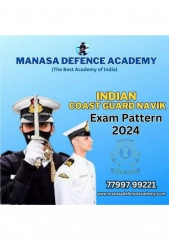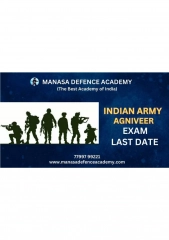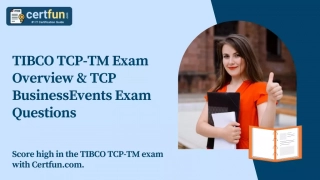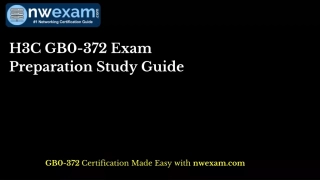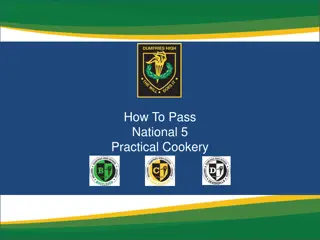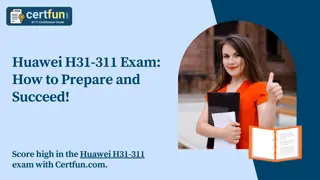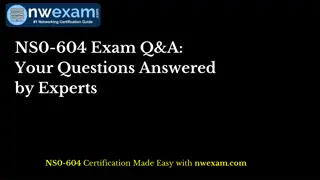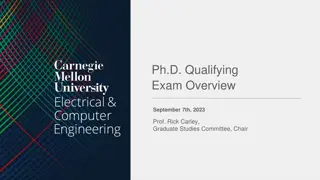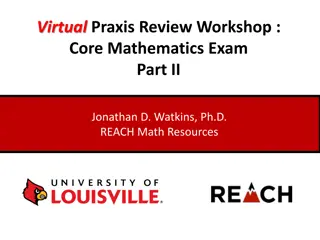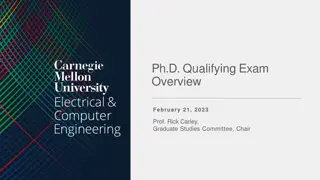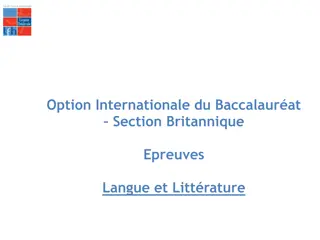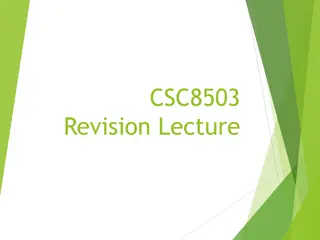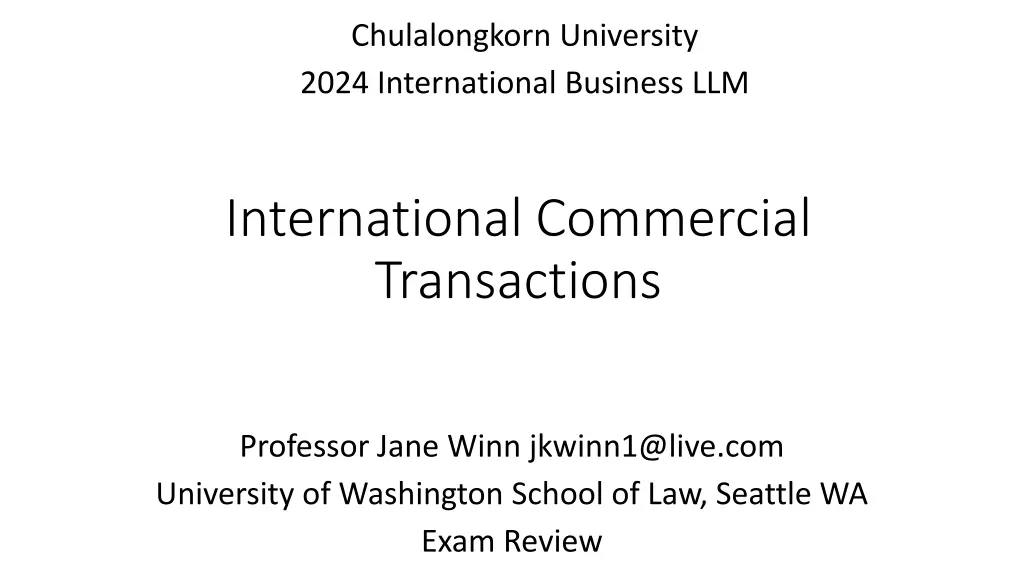
Exam Review: International Business and Commercial Transactions Analysis
Explore critical essay questions in international business law, examining the WTO Trade Facilitation Agreement and the differences between litigation and arbitration. Dive into real-world case scenarios to enhance your understanding of trade agreements and dispute resolution methods.
Uploaded on | 2 Views
Download Presentation

Please find below an Image/Link to download the presentation.
The content on the website is provided AS IS for your information and personal use only. It may not be sold, licensed, or shared on other websites without obtaining consent from the author. If you encounter any issues during the download, it is possible that the publisher has removed the file from their server.
You are allowed to download the files provided on this website for personal or commercial use, subject to the condition that they are used lawfully. All files are the property of their respective owners.
The content on the website is provided AS IS for your information and personal use only. It may not be sold, licensed, or shared on other websites without obtaining consent from the author.
E N D
Presentation Transcript
Chulalongkorn University 2024 International Business LLM International Commercial Transactions Professor Jane Winn jkwinn1@live.com University of Washington School of Law, Seattle WA Exam Review
Exam Review Essay Question 1 https://wts.indiana.edu/writing-guides/how-to-write-a-thesis-statement.html NOT Encyclopedia article with no point of view Answer the question [very biased] Consider more than one perspective (agree and disagree with biased statement), then Make a point someone could disagree with The WTO Trade Facilitation Agreement is merely the WTO s attempt to cover up the failure of the Doha Round by claiming credit for the fruits of decades of hard work by the World Customs Organization. Doha round started very broad ended very narrow, agree much smaller Agree that WCO is very successful because patient and collaborative BUT Trade Facilitation Agreement is a good framework to promote greater trade and economic development 01E OECD TFA, 01F ASEAN can implement, 02C WCO standards benefits are greater than costs (back office), 02A, 02B, 02C, Topic 7
Exam Review Essay Question 2 What was helpful and why? The distinction between litigation and arbitration is purely one of procedure and has no impact on the substantive determination of a dispute. Discuss. On the one hand (yes) arbitration is a procedure 06B Almost impossible to appeal arbitration = procedural difference 05C Arbitration is cheap and fast compared to litigating in courts 06A NY Convention countries authorize parties to opt out of litigation in courts and use arbitration because they should be equivalent in terms of justice On the other hand (no)(CISG, L/C, INCOTERMS = substance) 06A Folsom or 06B Redfern choose a subject matter expert to decide in arbitration, judge is a generalist (06A Folsom or 06B Redfern arbitrator does not need to be a lawyer so legal reasoning skill might be less than professional judge) 05E Horst v. Biddle Brothers: outcome re: CIF was changed on appeal 06B free will/freedom of contract of the parties in arbitration can impact procedure (1 or 3 arbitrators) or substance (choice of law)
Issue spotter CA/Buyer = Mouse, Thai/Seller = Duck Goods = clothing from Thailand, F2F contract formation in Thailand using US form contract drafted by the Buyer Jan 2022 Order 1 = $110,000, letter of credit Buyer s bank = Empire bank CA, Seller s bank = Sayam bank TH, CIF Bangkok Feb 2022 Order 1 complete (Mouse has goods, Duck has money) March 2022 Order 2 =$110,000, letter of credit Buyer s bank = Empire bank CA, Seller s bank = Sayam bank TH, CIF Bangkok May 2022 Order 3 = $110,000, open account [INCOTERM?] Before goods arrive in CA, Mouse customer complains, Mouse discovers breach (polyester and cotton, not organic cotton), sends Rabbit in Thailand to investigate 3A1 can Mouse refuse Order3 goods when they arrive in CA and refuse to pay? 3A2 what should Duck do? 3B Can Mouse get a refund from Empire bank or Sayam bank for payment for Orders 1 & 2? 3C Mouse has polyester-and-cotton clothing in warehouse she does not want ($100,000 loss), and must give refunds to customers ($50,000 loss). How to recover $150,000? 3D What should Mouse do differently in the future?
3A1 can Mouse refuse Order3 goods when they arrive in CA and refuse to pay? 3A2 what should Duck do? Snatch victory from the jaws of defeat or Snatch defeat from the jaws of victory Legal rules: does CISG apply? Apply 1.1 answer = no Sale of goods: either Thai or CA sales law, I assume contract has CA choice of law term (choose CA, exclude CA choice of law rules & CISG) CA UCC: what is Duck s duty as seller? Perfect tender, what is Mouse s right? Inspect before paying, I assume she inspects, discovers non-conformity, OK to reject and refuse to pay What should Duck do? Should he sue Mouse to collect payment? Cure is unlikely because Duck is a bad actor/malefactor/malfeasor/fraudster Duck should do nothing Why would CISG apply? Asante v. PMC Sierra Apply CISG (but common law is dispute driven, would it benefit Mouse to do that? Writing genres: what if this was a real judicial decision and you were writing a law review article about it?
3B Can Mouse get a refund from Empire bank or Sayam bank for payment for Orders 1 & 2? L/C is subject to UCP independence principle and CIF If the bank has inspected the documents and they are what the L/C requires, then bank has no liability to bank customer for breach of the underlying sale of goods contract Mouse got the bill of lading and took delivery of the actual goods, so the bank performed 100% of its duties to Mouse under the L/C If the third transaction was under L/C, what could Mouse do? She cannot ask bank to refuse to pay based on sale of goods contract due to Independence Principle She can ask bank to look for any minor error with documents under Strict Compliance Principle Assume Empire Bank finds a minor error and refuses to pay for documents, what then? It becomes Sayam Bank s problem, Duck is Sayam Bank s customer so Sayam Bank takes Duck s money out of a bank account and gives Duck back the documents Duck can abandon the goods, port warehouse will sell Duck can find someone in the US to sell the goods for him (usually for a commission)
3C Mouse has polyester-and-cotton clothing in warehouse she does not want ($100,000 loss), and must give refunds to customers ($50,000 loss). How to recover $150,000? She could sell warehouse clothing for 50 cents per $1 purchase price How to recover $100,000? Sue in CA: no loser pays rule on attorneys fees, US lawyers are expensive and Duck has no US assets, so necessary to try to enforce a US judgment in Thailand to collect the money Sue in Thailand: Thai lawyers cheaper, Thailand has a loser pays rule, Duck may have assets in Thailand but Duck might have home court advantage (bias in his favor), everything will have to be translated, Duck will hide all his assets Bottom line: probably does *NOT* make sense to sue Duck in either US or Thailand Accountant teaching the masters class said if you haven t lost $100,00 you aren t really in business
3D What should Mouse do differently in the future? Inspection service like Bureau Veritas or SGS or Intertek Rabbit (family member) could help For want of a nail, a kingdom was lost War, a horseshoe come off a horse s hoof With insurance, if you win you lose and if you lose you win

